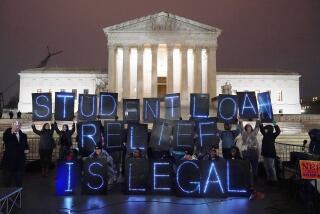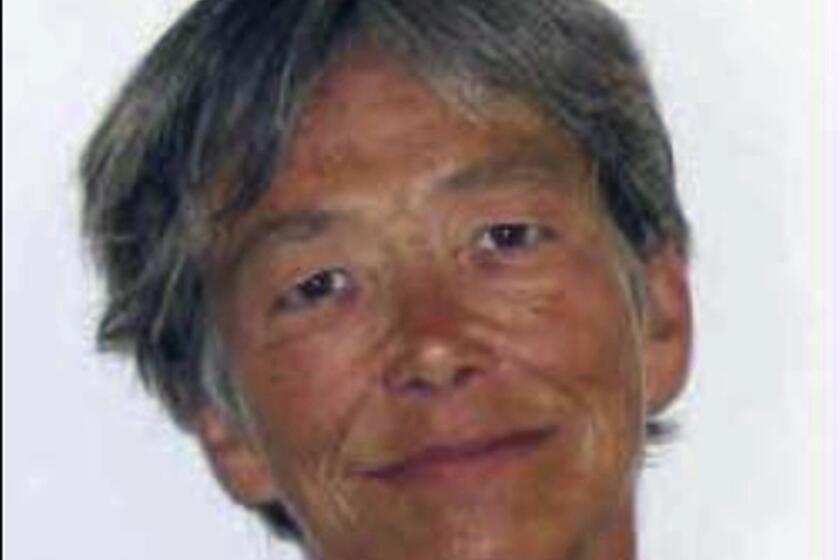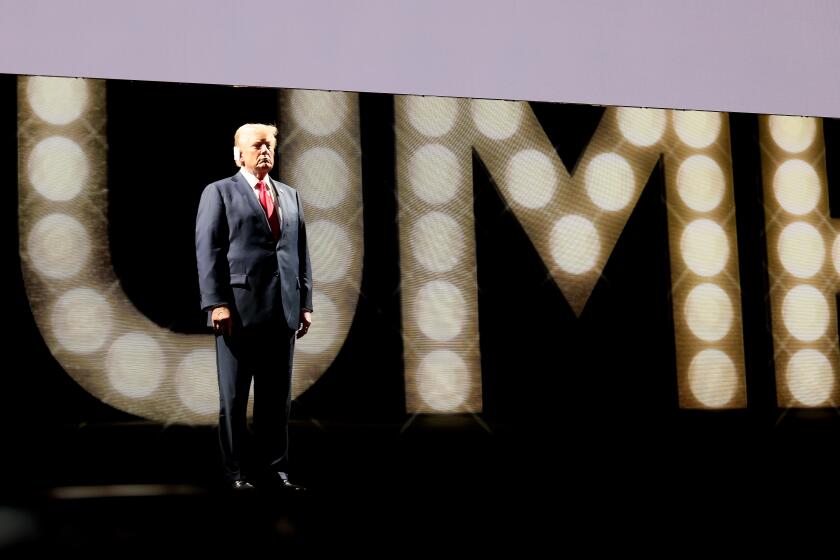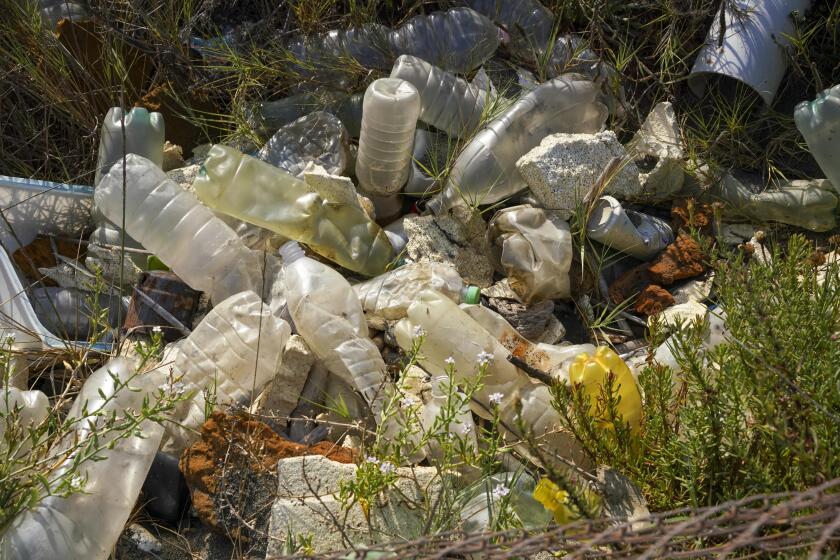U.S. Says Iraqi Use of Poison Gas on Kurds Is ‘Abhorrent’
Secretary of State George P. Shultz, in a stern lecture to a visiting high-level Iraqi official, said Thursday there is conclusive evidence that Iraq violated international law by using poison gas to rout Kurdish rebels in the remote northern part of the country.
State Department spokesman Charles Redman, briefing reporters on Shultz’s meeting with Iraqi Minister of State Saddoun Hamadi, said Iraq’s use of chemical weapons was “abhorrent and unjustifiable.”
Redman declined to say whether Washington planned to take any action beyond the diplomatic protest.
“The use of chemical weapons is totally unjustifiable and unacceptable,” Redman said. The rebuke was apparently the sharpest American criticism of Iraq since before the 1980 outbreak of the Iran-Iraq war in which the United States, despite its official neutrality, tilted toward Baghdad.
Shultz told Hamadi that the Administration “registers its disapproval in the most powerful way,” according to a department official who attended the meeting.
Hamadi, talking to reporters at the State Department after the meeting, denied the use of poison gas.
Charge ‘Absolutely Baseless’
“I told the secretary that the allegations (about)) chemical weapons were absolutely baseless,” Hamadi said. “This hasn’t taken place at all.”
Iraq has admitted using chemical weapons in the Persian Gulf War but maintains it was retaliating for Iranian gas attacks.
Washington complained previously about Iraqi use of chemical weapons against Iran but it always coupled that criticism with balancing attacks on Iranian policy. But the latest Reagan Administration statement contained no suggestion that the Kurds had done anything to provoke the Iraqi use of poison gas.
The latest Administration statement was expected to put a new chill on U.S.-Iraq relations.
On Capitol Hill, Sen. Claiborne Pell (D-R.I.) introduced legislation imposing sanctions against Iraq for its use of chemical weapons.
‘Final Solution’ to Problem
“A crime of unthinkable proportions is emerging,” Pell, chairman of the Senate Foreign Relations Committee, said in a speech to the Senate. “For the second time in this century, a brutal dictatorship is using deadly gas to exterminate a distinct ethnic minority. There can be no doubt but that the Iraqi regime of Saddam Hussein intends this campaign to be a final solution to the Kurdish problem.”
Kurdish refugees, who have been pouring across the border into Turkey for a week, have told vivid stories of Iraqi chemical warfare. However, before Thursday’s statement, the Administration had said the evidence was insufficient to prove Iraqi use of gas.
“We have been conscientious in not making assessments before such assessments could properly be made,” Redman said Thursday. “Based on this continuing process, we now feel confident in making this statement.”
He refused to say how the evidence was obtained because to do so would reveal intelligence sources and methods.
Borders on Genocide
Meanwhile, Amnesty International called on the United Nations Security Council to take action to stop the massacre of Kurds. In a statement issued from its London headquarters, the organization said, “The mass killings are part of a systematic and deliberate policy by the Iraqi government to eliminate large numbers of Kurds . . . as a punishment for their imputed political sympathies and in retaliation for the activities of opposition Kurdish forces.”
Some critics have charged that Iraq’s latest offensive against the Kurds borders on genocide. When asked if the Administration shared that assessment, Redman said, “I don’t have any way to go to that question directly.”
The Kurds are a distinct ethnic group with its own language. They live in parts of Iraq, Iran, Turkey, Syria and the Soviet Union. Iraqi Kurds, who have been demanding the right to establish their own independent state, have been in rebellion against the central government, off and on, for about 40 years.
Iraq accuses the Kurds of treason because their insurgency diverted Iraqi forces from the main gulf war front with Iran. Iraqi officials accused the Kurds of accepting military assistance from Iran.
“We consider the actions of those (Kurdish) groups to be a fifth-column activity because they provide the Iranians with a better opportunity to carry out their own military effort,” Nizar Hamdoon, Iraq’s deputy foreign minister, said in an interview last year.
Iraq launched a major offensive against rebel Kurds in northern Iraq on July 19, the day after Iran agreed to a United Nations-ordered cease-fire. By some estimates, more than 100,000 Kurdish guerrillas and civilians have fled across the border into southeast Turkey since then.
A small group of Kurds, dressed in their traditional baggy pants, demonstrated outside the State Department during Hamadi’s meeting with Shultz. One of the demonstrators, Muhyeddin R. Abdullah, said he was on the 14th day of a hunger strike to protest Iraqi use of chemical weapons.
More to Read
Sign up for Essential California
The most important California stories and recommendations in your inbox every morning.
You may occasionally receive promotional content from the Los Angeles Times.






